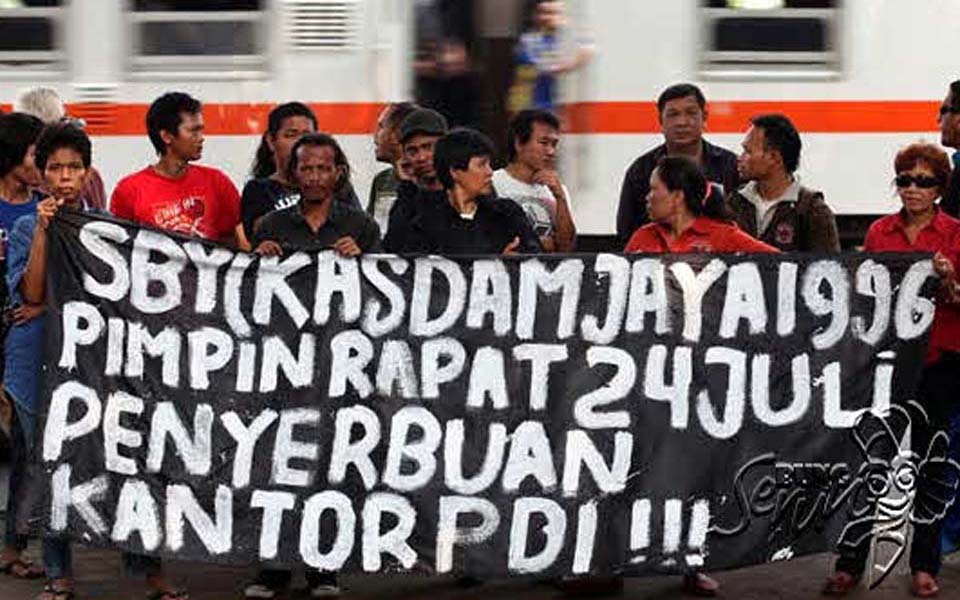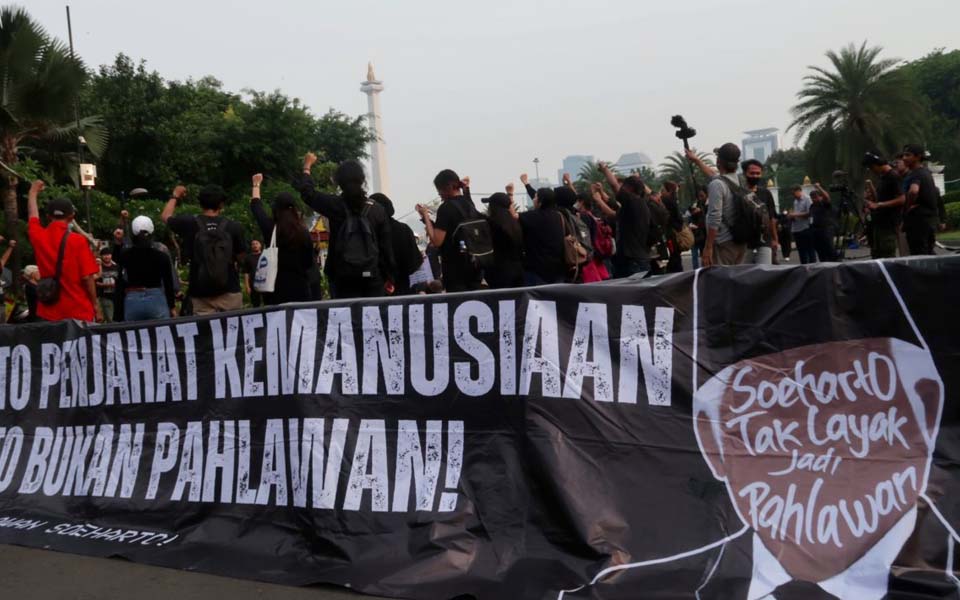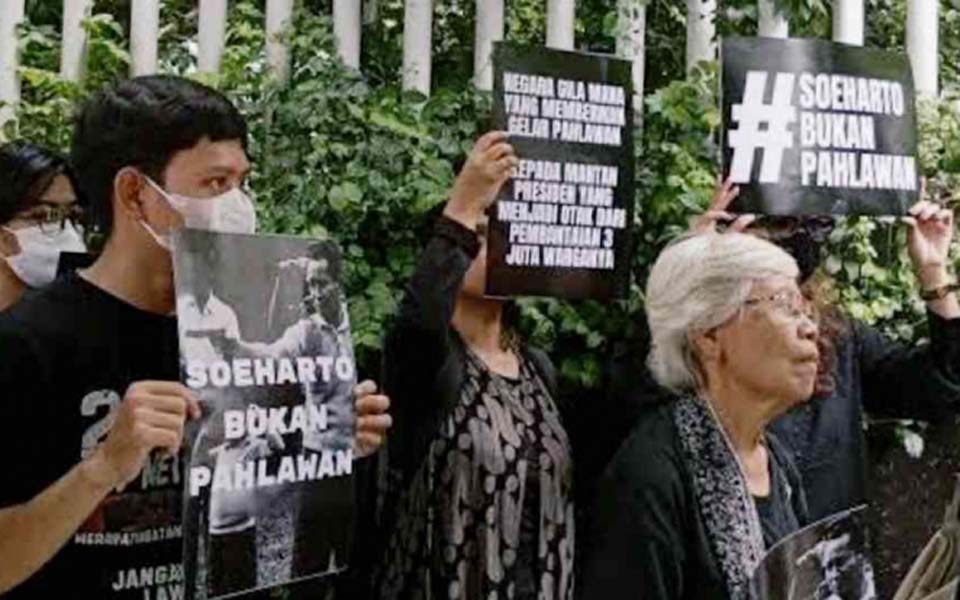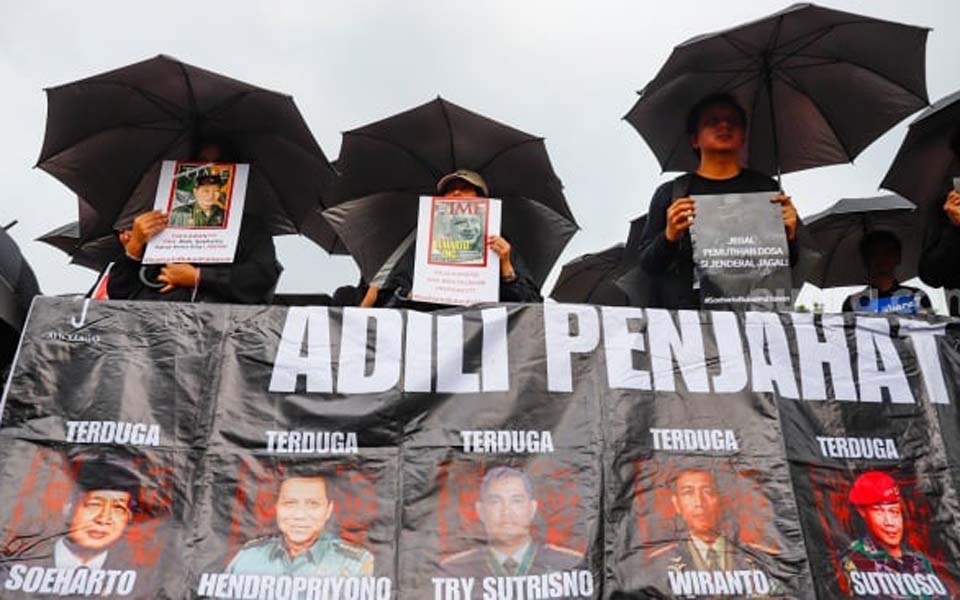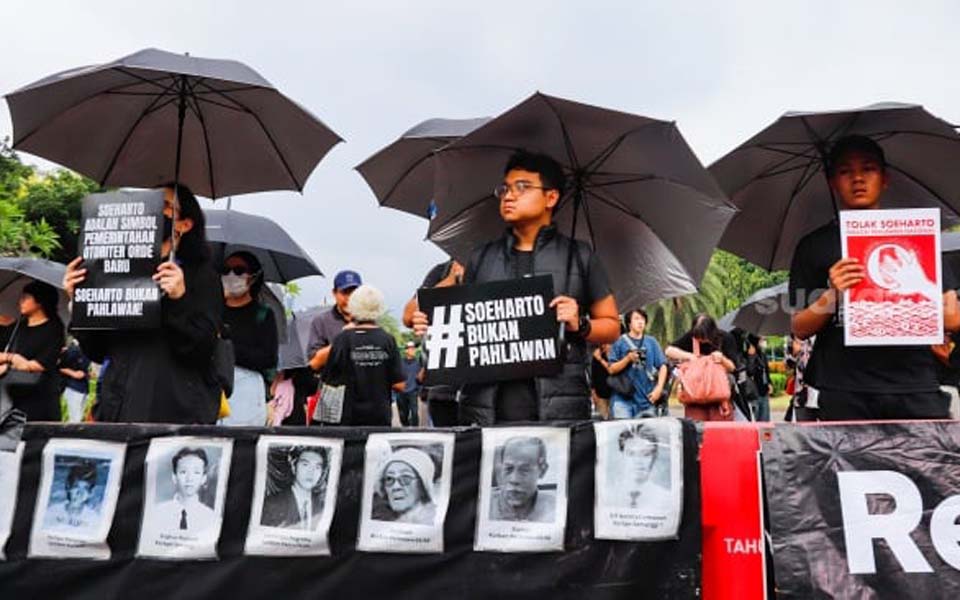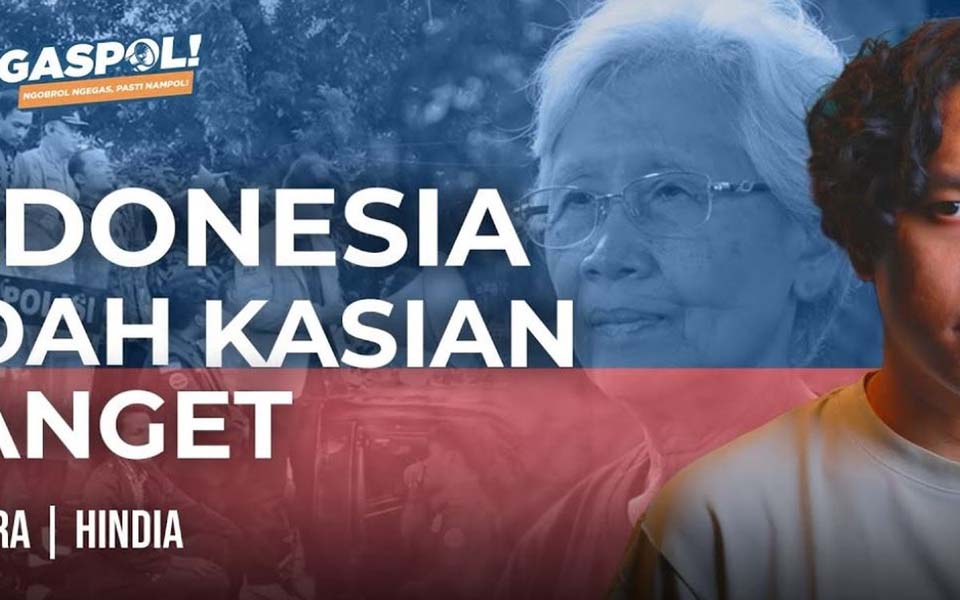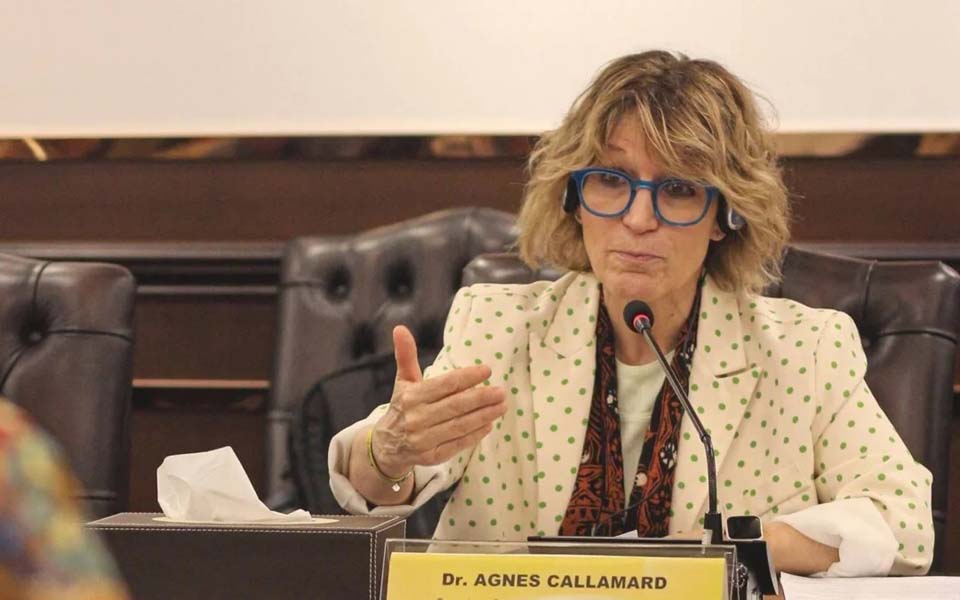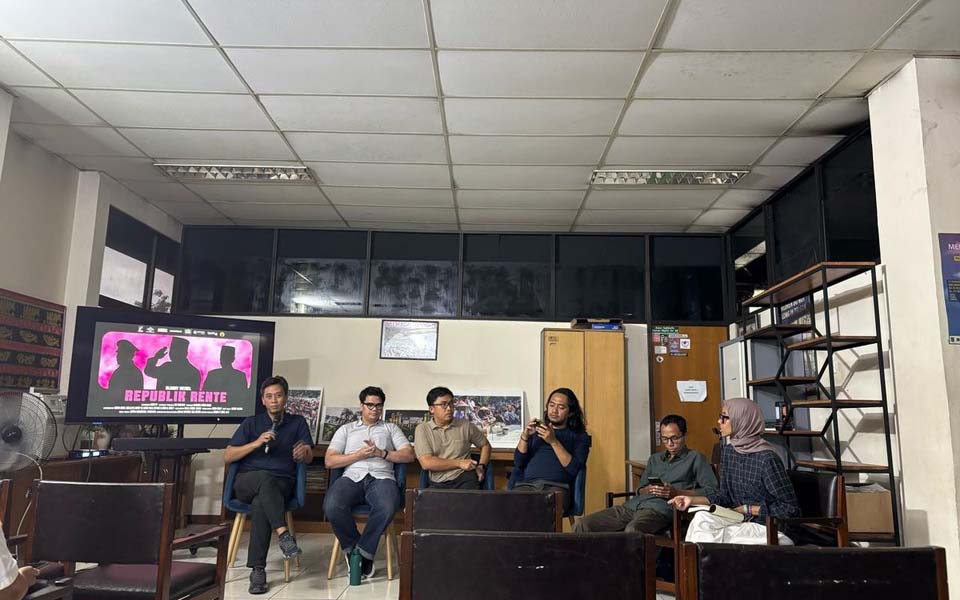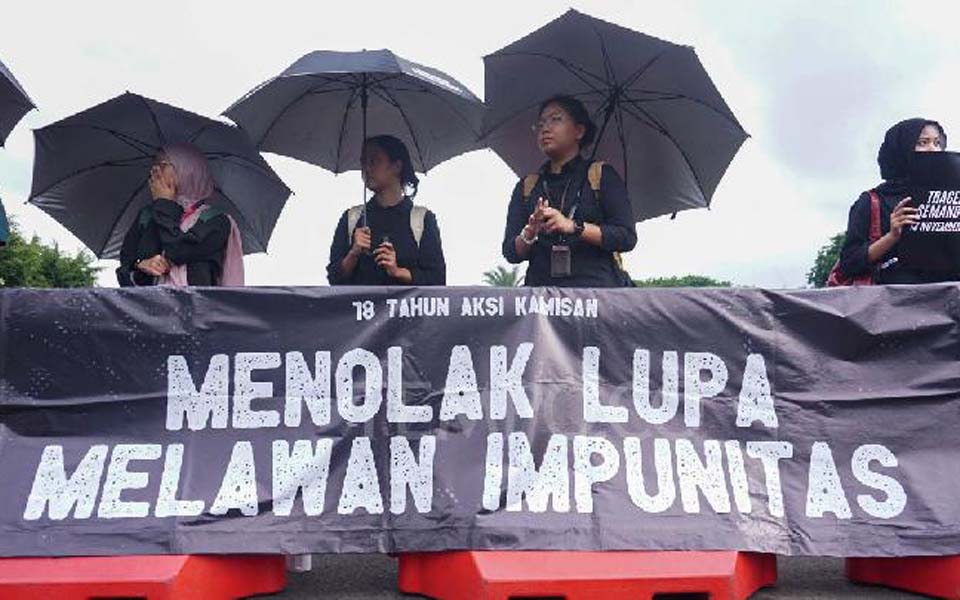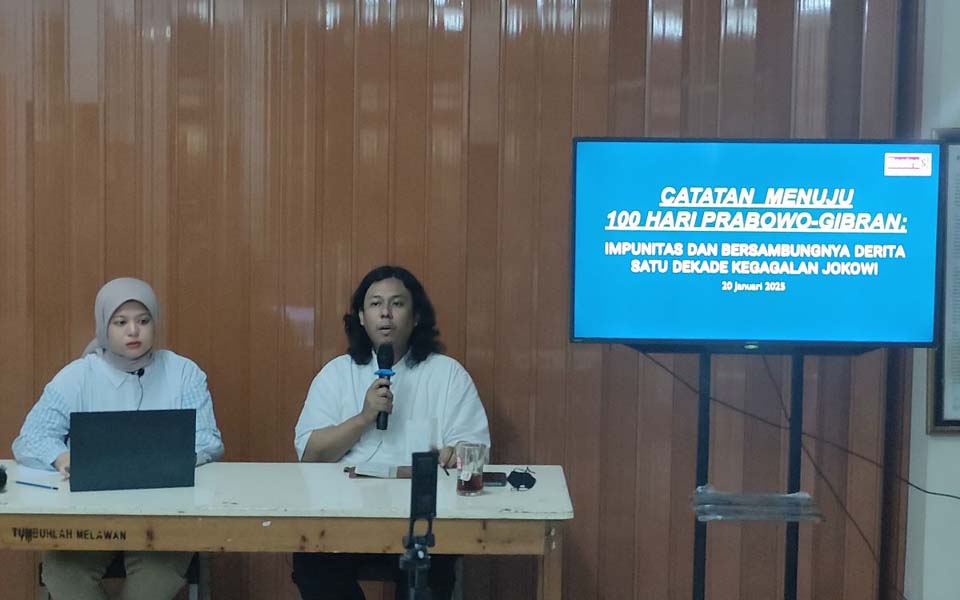Jafar G. Bua, Palu – If July 27 commemorations are usually identified with President Megawati Sukarnoputri, this was not the case in city of Palu, Central Sulawesi, where commemoration were instead marked by actions rejecting Megawati and presidential candidate Susilo Bambang Yudhoyono (SBY).
The action was organized by around 50 people from the Central Sulawesi Anti-militarism Front (Front Anti Militerisme Sulawesi Tengah) who had been holding a long-march in the area of Jalan Protokol since 12noon on Tuesday July 27.
The front is made up of the People’s Democratic Party (PRD), the Indonesian National Labour Front for Struggle (FNPBI), the National Labour Union (SPN) and a number of Palu youth organisations. “Oppose militarism”, “Oppose Mega” and “Oppose SBY” was written on banners and expressed in speeches.
The demonstrators also demanded the disbandment of the military’s territorial command structure from the level of Kodam, Korem, Kodim, Koramil and Babinsa(1). They also called the nationalisation of the military and the general’s business asses. Despite being anti-militarism, they also called for the wages of soldiers and low-ranking officers to be raised.
The chairperson of PRD South Sulawesi, Eko Aryanto, said that they were demanding that militarism be eradicated and are calling for the formation of a united government of the people. “The 2004 elections are not the political or economic way for the people [to improve their lives]”, he said.
During the long-march which started at GOR Park and proceeded to the South Sulawesi regional parliament on Jalan Sam Ratulangi via the Hotel Indonesia roundabout, demonstrators also distributed leaflets. After the demonstration ended, they returned to GOR park. (nrl)
Notes:
1. The TNI’s territorial command structure mandates the deployment of military command posts and detachments at all levels of the civil administration: provincial, district, sub- district and village. This structure provides the organisational framework for the TNI to act as a political security force at all levels of society.
[Translated by James Balowski.]





